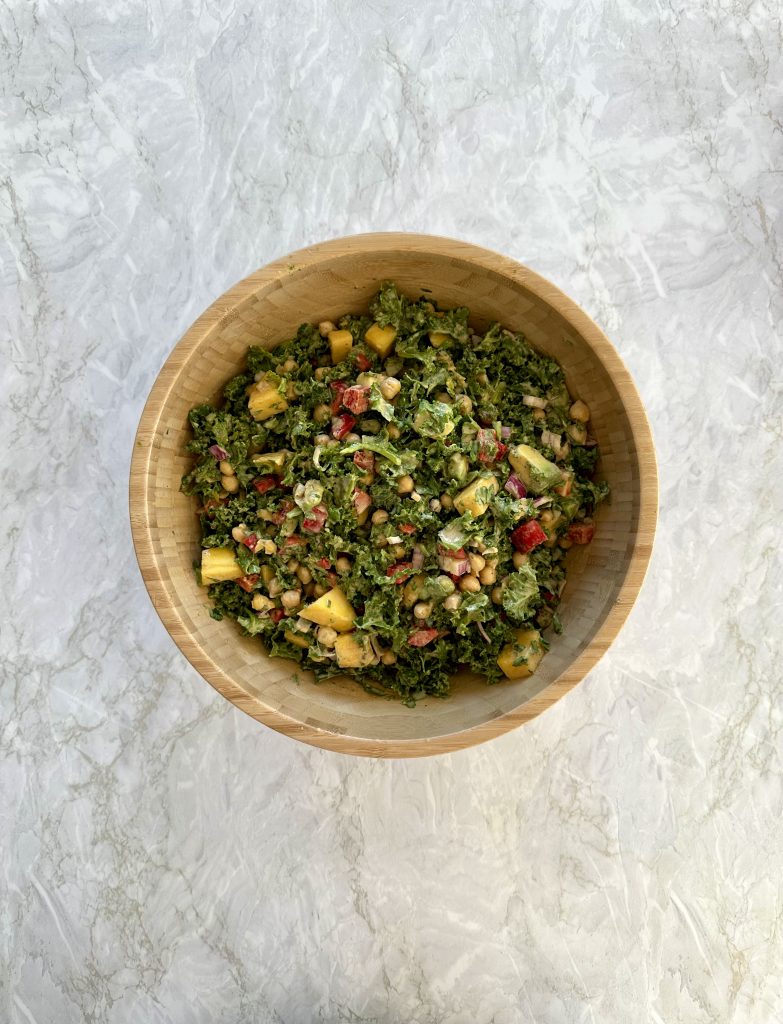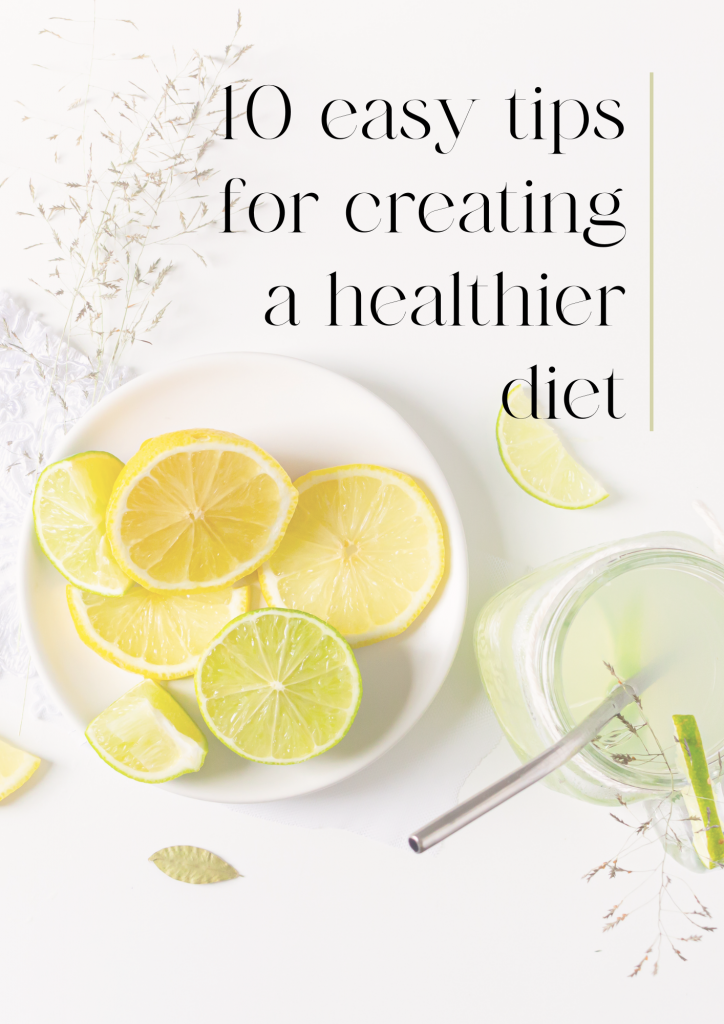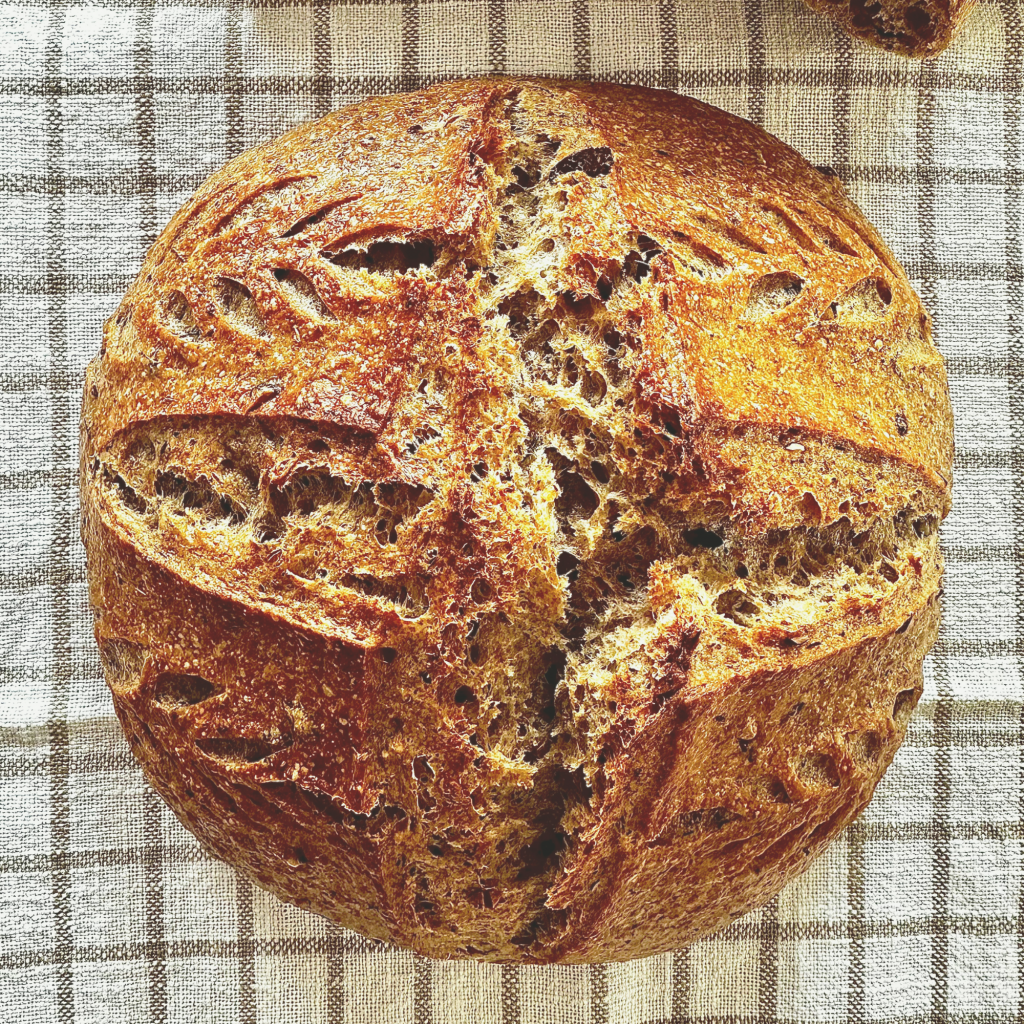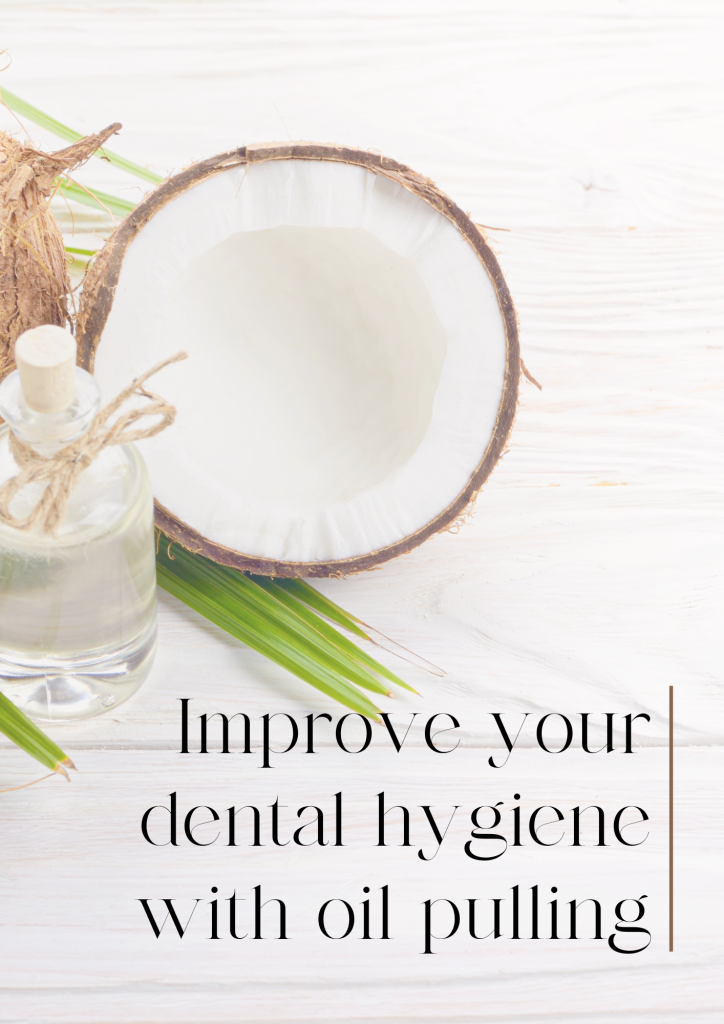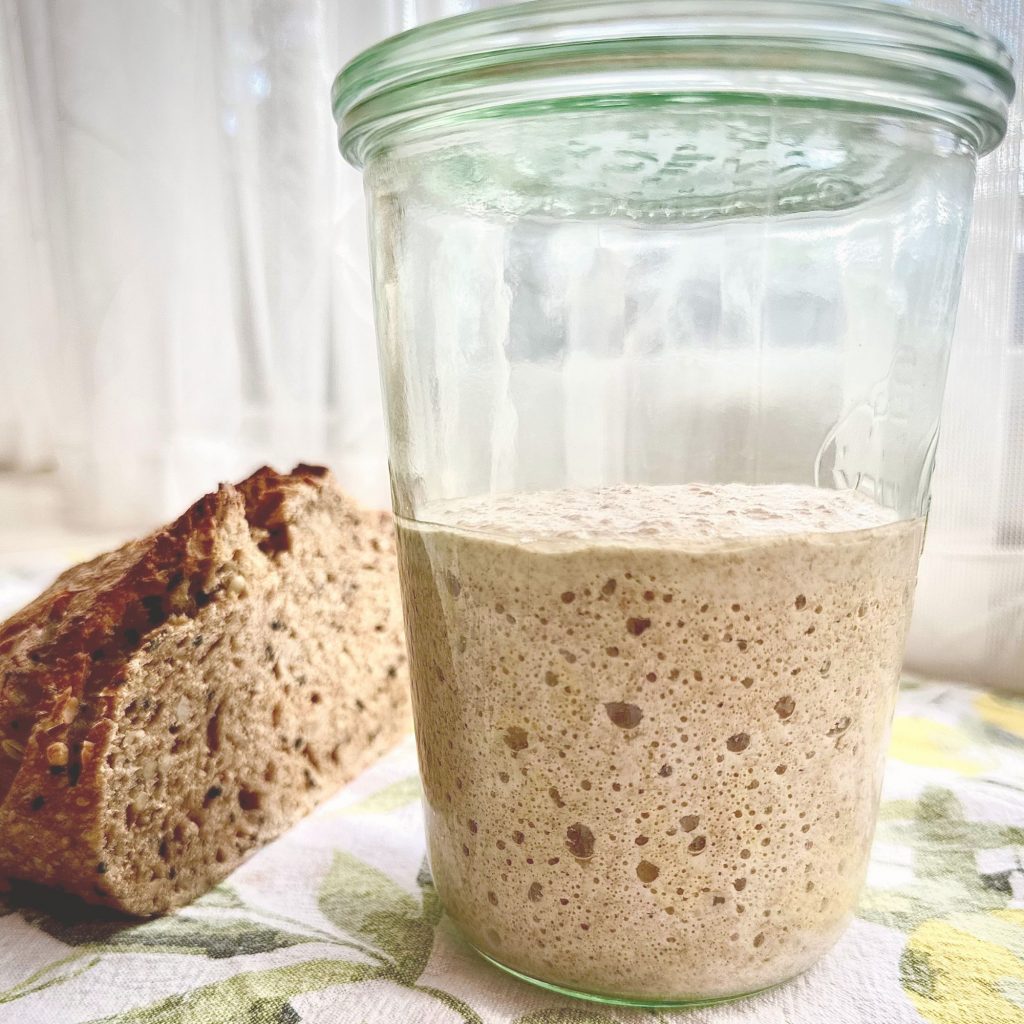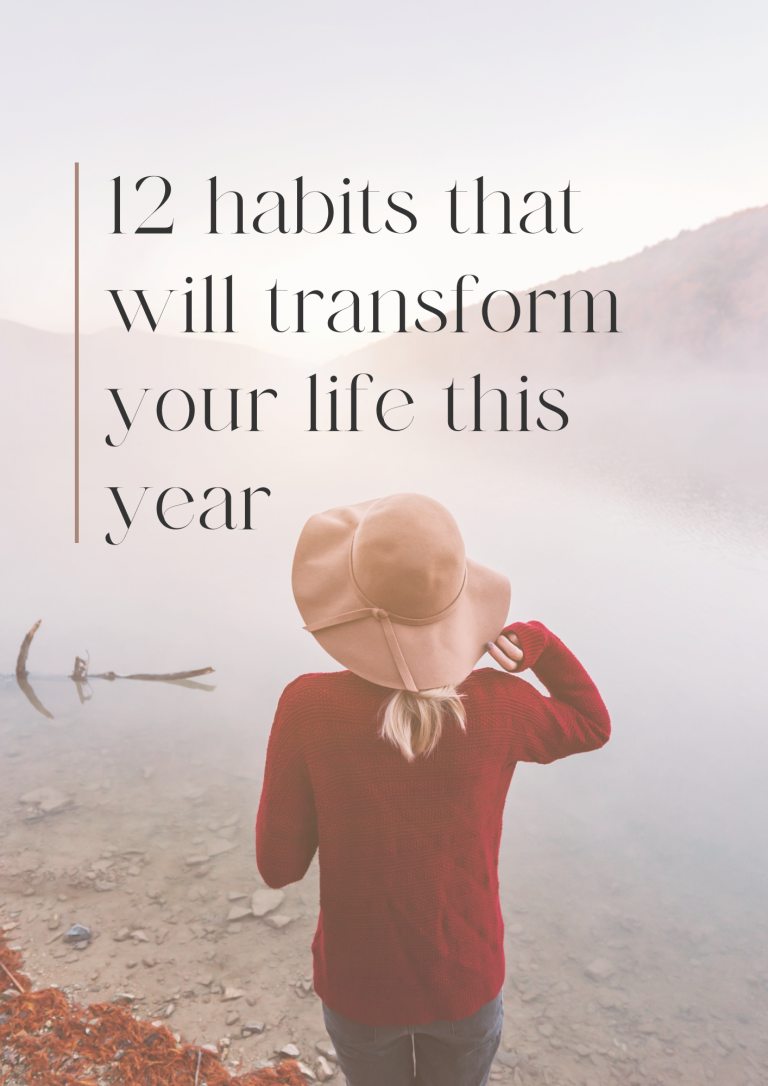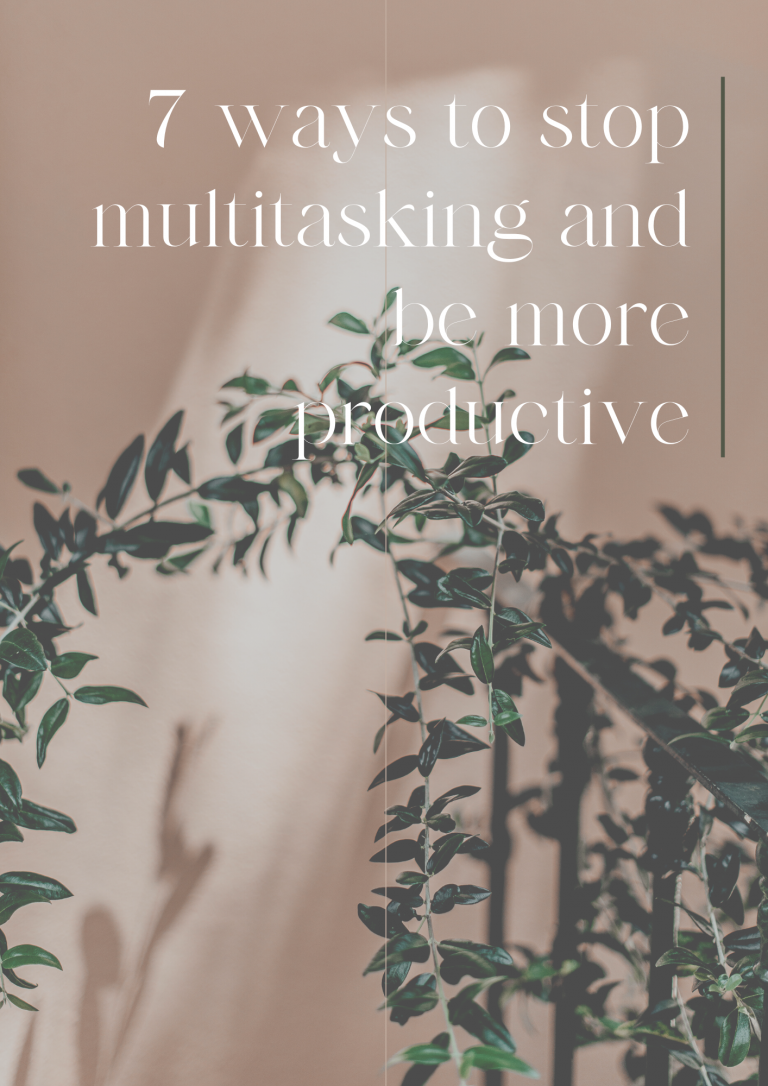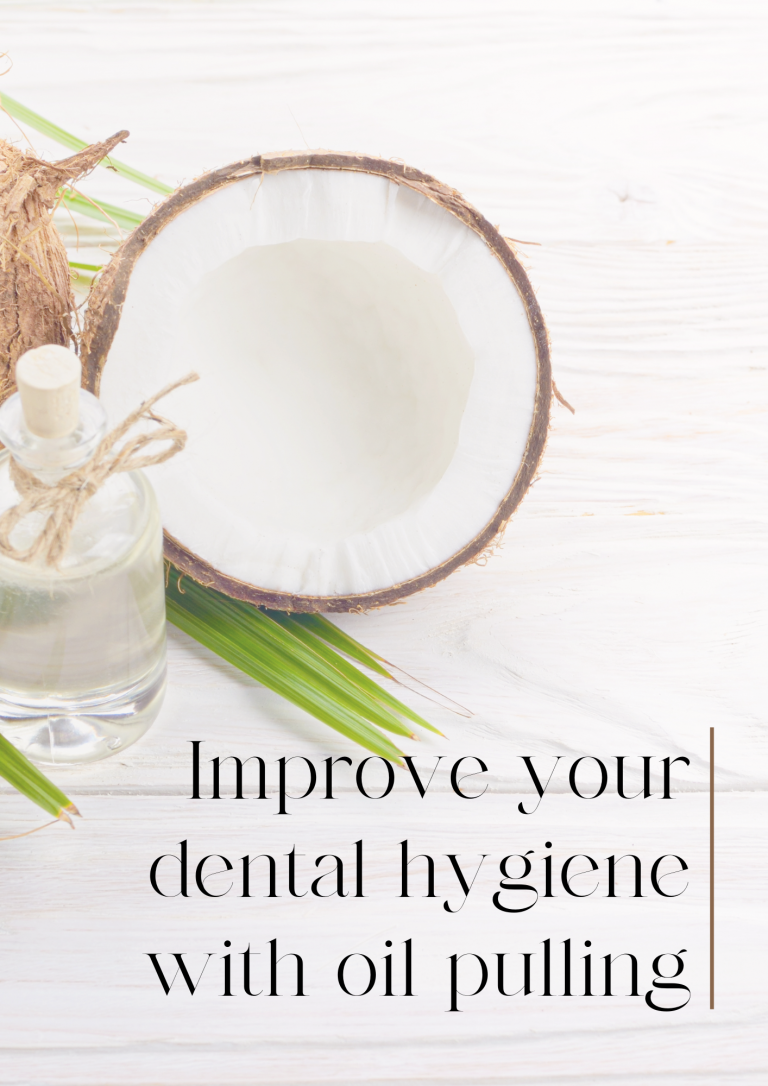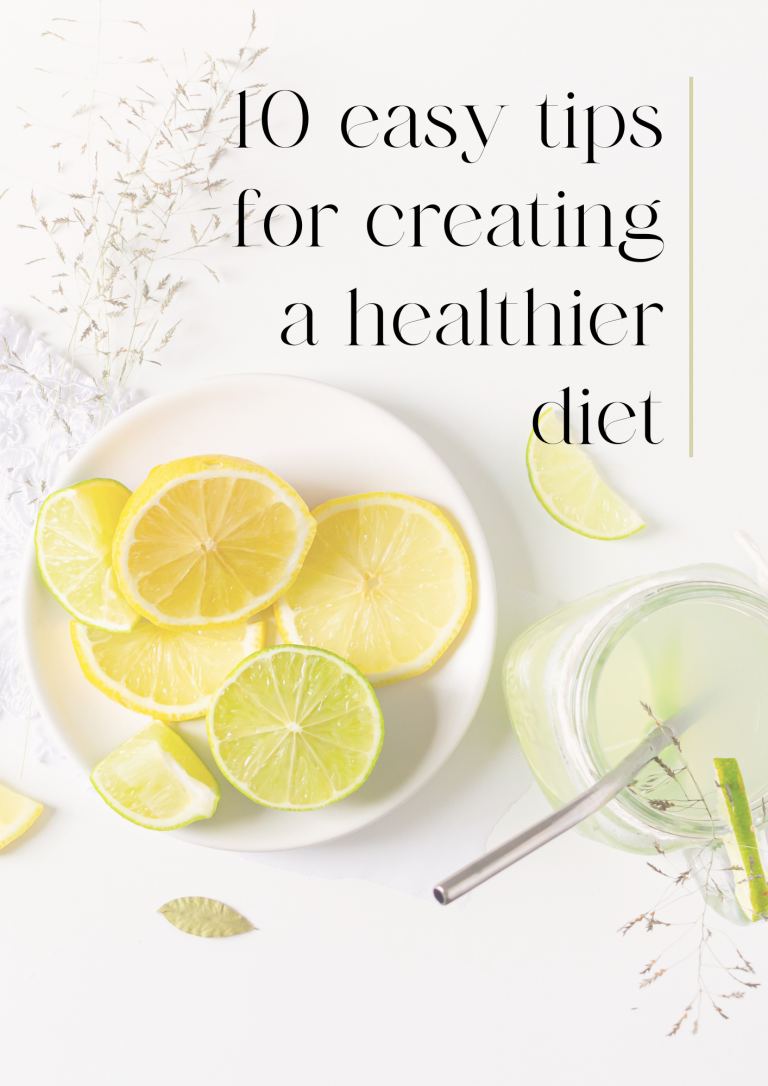16 Basics of a healthy diet
“This post may contain affiliate links*. If you decide to purchase through my links, I will get a small commission at no extra cost to you. Read the full disclosure here. “
There is, hands down, nothing more controversial and thoroughly discussed than a healthy diet. Search for ‘healthy diet’ on Google, and you’ll find more articles and opinions than you could ever consume in your lifetime.
Therefore, in my opinion, it’s crucial to get some handy basics on hand that will help you figure out what a healthy diet truly is. Nutrition and a healthy diet are among the most personal topics, with tremendous effects on one’s life. Yet, everyone seems to have a say in this one (me included).
Note that the information provided in this blog post is solely for entertainment and general information purposes and shall not under any circumstances be considered as professional or health advice. Please consult your healthcare provider for any health-related concerns. The reliance on any of the provided information is solely at your own risk. Please read the Disclaimer here.
The art of a healthy diet is to understand what health means and what every individual can do daily to achieve the goal of eating healthfully and become the most glorious version of themselves.
A healthy diet starts with understanding what health truly means. If I ask the dictionary what the meaning of health is, this is what I get:
“The condition of the body and the degree to which it is free from illness, or the state of being well.”
With this definition in mind, a healthy diet should always support the goal of being free from illness and maintaining overall well-being.
Now, you may wonder how much influence your diet truly has on your health. Here, the gap of different opinions already starts to form. Some say your diet has little to no impact on how healthy you feel within your body. Others, including me, believe that the food you consume daily is the most powerful tool you can use to improve your health for tomorrow.
But who am I to talk about a healthy diet? Well, for once, I’m a certified holistic nutritionist who has learned a great deal about how the human body works and how food can influence this complex system within our organism.
The ethical question.
Additionally, healthy eating has been a long-standing interest of mine for over a decade. I came into contact with healthy eating when I was twelve years old (I’m 28). The reasons for this are widespread: Primarily, it was at that time that I started to struggle with the ethical question of whether eating meat for physical maintenance is necessary. And if it therefore justifies the slaughter of millions of animals per day, and all the downsides this has on the environment of the Earth.
With this issue in mind, I began my research because ‘malnutrition’ from avoiding meat was a trend at the time. Especially as a Bavarian girl, I can tell you I was never the welcome guest at any party. Yet, I couldn’t stop, because consuming animals felt so wrong that it justified my willpower to withstand all the social struggles. (Please don’t get me wrong here: this is merely my story, and if you enjoy eating meat, then that’s your decision.)
A healthy diet starts with facing problems.
My whole life, I struggled with Eczema, allergies, and excess body weight. With the tips I share below, I lost around 35 kg of excess body weight within one year, effectively managed my eczema – now I have weeks, if not months, of symptom-free time, and I have cured my allergies. I couldn’t eat nuts and certain fruits for the majority of my life. But when I became vegan in 2014, my allergies disappeared. Since I’ve focused even more on my diet, following the 16 basics of a healthy diet, I haven’t experienced a running nose during Spring ever since.
Yet, please take the following as the most crucial tip you’ll ever hear:
Never believe anything you hear from someone who is not you. Always think critically whenever you hear any advice about any topic that concerns you in any way. No matter how certified or professional the person sharing information seems to you.
Your body and health are your responsibility alone.
Therefore, I strongly encourage you to conduct thorough research at all times. Think about the things you hear people talking about and judge them profoundly. By criticizing whether some advice could work for you, you get to your truth, which is the most crucial advice you could ever hear.
Even though I thoroughly research every time I share information on my blog, I know that what I believe is not for everyone. And this is exactly how life should be. Therefore, I ask you today to think critically about what I share here and if what’s true for me could also be true for you.
The food we consume is nature’s medicine.
With everything I have learned about the human body, health, and nutrition over the past few years, I believe that the food we consume daily has a profound impact on whether we experience optimal health or struggle with illness.
But why is that? I have four primary reasons to share here:
1. Our immune system sits in the gut
The immune system, which comprises various mechanisms that work together in the body, plays a crucial role in maintaining physical health and preventing infectious diseases. Interestingly, 70-80% of our immune cells are located in the gut. It allows for the correlation between health, our digestive system, and our daily food intake.
2. The impact our gut has on the brain
The gut and the brain communicate continuously through the gut-brain axis. The state of the gut, particularly the microbiota, plays a crucial role in maintaining the body’s homeostasis.
Since our microbiota, the microorganisms that live in our gut and interact with it, feed upon the same food we consume daily, the health of our microbiota depends on whether we nourish them with a healthy diet or malnourish them with food that’s not meant for the human body.
3. The contact with the environment through the digestive system
The gastrointestinal tract, our digestive system, is approximately 30-40 square meters. In comparison, our skin surface is about 2 square meters, so the area of the digestive system is about 20 times bigger than our skin.
With this information in mind, for me, it’s straightforward that the food we consume is vital to the health of our bodies. Since its contact with the environment (the food we eat) is much greater than anything that could touch our skin regularly.
4. The way the human body uses nutrients to rebuild itself daily
We eat food daily to nourish our bodies. With the macro and micronutrients we resorb through our digestive system, our bodies repeatedly rebuild billions of cells. Yet, only the quality of the nutrition decides whether the organism can do its job properly or has to make compromises when it comes to repairing, rebuilding, and creating cells.
This is a list of reasons that motivate me to develop the discipline to choose food that nourishes my body daily, rather than just consuming low-quality food to satisfy my cravings quickly.
With the 16 basics of a healthy diet I’m about to share with you, it will be much easier for you to make the right daily decision about what food to consume to support your health for today and tomorrow.
Let’s discuss the 16 basics of a healthy diet.
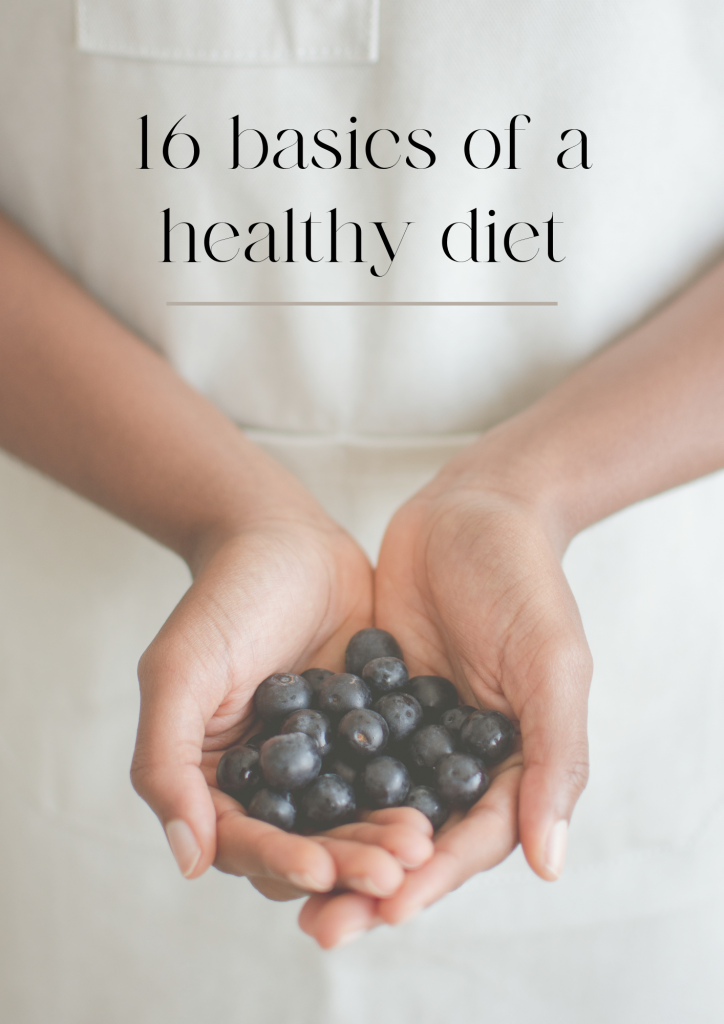
Understand what a healthy diet is about
A healthy diet begins with a basic understanding of what healthy food is all about. And with the question of what constitutes healthy food, another topic emerges: How does the human body function?
There is a reason why we human beings, or all beings for that matter, consume food on a regular, mostly daily basis. And it’s not just because we get hungry and want to satisfy this sensation or treat food as a traditional routine.
Hunger merely acts as a symptom of a harmonious system that works as a perfect organism. Our bodies use food to create new cells and repair and renew old ones. With this, our organism ensures that our bodies function properly. And that we feel healthy and have sufficient energy throughout the day.
If your goal is to eat more healthfully, focus on obtaining food that provides your body with the exact building blocks, also known as macro- and micronutrients, to maintain balance and overall health.
It’s not all about the macros
Since the internet is packed with advice on how to meet your daily needs of macronutrients, and especially protein seems to be the hot topic of the day, it’s tempting to ignore the importance of both macro- and micronutrients.
In my opinion, the focus on micronutrients can easily rank as the top priority, once you can assure a continuous supply of macronutrients to your body. This is already the case whenever you can obtain healthy fats, protein, and carbohydrates on a daily basis.
The emphasis on mainly protein, as it seems to be the case these days, can cause more harm than good, especially for those new to the field of nutrition. Of course, protein is crucial for the body’s correct functioning; however, it’s not all about the macros.
Your body needs so much more than simply fats, proteins, and carbohydrates to fulfill its numerous daily tasks. If you examine human history, you’ll see that this was a well-known phenomenon. For instance, an extreme lack of Vitamin C could lead, within a few weeks, to a disease called scurvy. Sailors, in particular, suffered from it due to their limited access to fruits and vegetables.
However, with the focus on healthy macros, you can easily check off the boxes for both macro- and micronutrient-dense foods, and get the best of both worlds.
Focus on nutrient-dense foods
A healthy diet can begin the moment you start focusing on consuming nutrient-dense foods. This does not necessarily have to be an all-whole-foods, plant-based diet; yet, if you do your math and delve into the topic of what exactly are the foods that hold the most nutrients, you’ll probably conclude that your goal is, in fact, the easiest to achieve with a whole-foods, plant-based diet.
Start your research by combing through trustworthy sources of information about the food you currently consume. How nutrient-dense are your bread, pasta, pastries, processed foods, and animal products?
And for a hint of transparency: social media is, under no circumstances, a trustworthy source of information when it comes to healthy nutrition (or any other important topic).
I can highly recommend the books of Dr. Michael Greger. His most well-known book is probably How Not to Die*. However, he has also published other notable works on the topic of a healthy diet. I am currently reading How Not to Age*. It’s a fantastic book that offers excellent research and is packed with valuable information.
What are nutrient-dense foods?
Nutrient-dense foods are those that not only have a balanced ratio of macronutrients, such as healthy fats, protein, and carbohydrates. They must also contain a significant amount of micronutrients, including vitamins, minerals, and trace elements.
Eat the rainbow
This is your no-fuss, straightforward advice on how to incorporate more nutrient-dense foods into your diet without breaking a sweat.
You can start today to incorporate more veggies and fruits that are placed on the funny side of the rainbow. The more colorful your plate looks, the higher the likelihood that you will consume a wide variety of nutrients.
It’s not simply veggies or fruits.
It’s not simply vegetables, fruits, legumes, grains, nuts, and seeds, and animal products. Even if many talk about those in a very interchangeable way, so that it seems that it doesn’t matter how many different members of these categories you consume regularly.
But this is far from the truth. On the plant-based side of nutrition, it does matter how diverse you make your diet. Because every vegetable, fruit, legume, grain, nut, or seed comes with a different composition of nutrients. Which will benefit your health if you mix things up as often as you can.
There, the analogy of the rainbow is a literal lifesaver. Because it makes it easy for you to understand that your plate should resemble a rainbow in terms of the plants you fill it with.
Aim for 30 plants per week
Another very effective yet simple method to gather a wide range of nutrients for your body’s health is to aim for a minimum of 30 different plants per week.
There is a trend going around the internet with what’s called the ’ 30-plant challenge’. Usually, I’m not a huge fan of trends, but this one makes a lot of sense. In the long term, you run so much better by counting how many plants you eat per day/week instead of counting your calories.
What is a plant?
Eating 30 plants per week may sound very challenging at first, but a plant can include all sorts of spices, as they grow as plants, such as pepper and chili, as well as herbs like parsley or basil, seeds like sunflower seeds or sesame seeds, and nuts like cashew nuts or walnuts. Plants are not only vegetables and fruits, but they should also resemble your primary focus in this challenge.
Sometimes it’s so easy to forget about the simple things in life. One of these simple things is the power of spices and herbs. And this is the secret trump in the 30 plants challenge.
With one pot of Curry or Dahl, you can easily check off over ten different spices and herbs from your list. If you enrich your dish with a few additional vegetables on top, it becomes even more nourishing!
For a healthy diet that supports your health of today and tomorrow, it’s crucial to emphasize the importance of variety. The more you diversify your diet with a variety of plants, the more you can improve your health. And I’m talking about true variety: pick five to ten different fruits, five to ten different vegetables, five to ten different spices, herbs, nuts, seeds, and legumes. The more you heed this advice and implement it in your daily diet, the easier it is to pack your body with all the nutrients it craves in the first place.
Eat your fiber!
By now, the focus of science has shifted towards the importance of a healthy gut microbiome. This is fantastic news, as the most outstanding information is the importance of eating enough fiber.
What is fiber?
Fiber is the material that prevents all plants from falling apart. It’s the foundation of their structure, no matter how it may look. Also, fiber is the favorite food of our good gut bacteria.
Yet, fiber tends to carry a bad reputation. In German, the word fiber translates as “Ballaststoff,” with “Ballast” meaning unnecessary baggage that is burdening the system. The origin of this word may stem from the fact that the human body can only rarely absorb nutrients from fiber and will eventually eliminate it without notice.
This then seemed to be the starting point for the whole fiber vs. no fiber debate. Because why consume something if you cannot get any benefits from it? With benefits meaning calories or other nutrients.
Most do not consume enough fiber.
With this attitude, we’ve evolved into a Western society that barely consumes any fiber. Only a small fraction of people manage to meet the recommended daily fiber intake. Merely 5% of men and 9% of women can reach the minimum daily amount of dietary fiber. The recommended daily intake of dietary fiber is approximately 30 grams.
That is very sad, as it means that most people do not consume whole, real foods, as they come in the form of an apple, a carrot, or any other plant-based food. It means that the diet of most people concentrates on isolated and processed foods that rarely provide any fiber. Did you know that one medium-sized apple contains approximately 4 grams of fiber?
This is already approximately 13% of your daily recommended intake, and you can usually consider one apple as one serving. This means it does not keep you satisfied for an entire day, so you would likely eat more than just that during the day. With the right food choices, getting enough fiber is not a challenge; it’s inevitable, and you can achieve it with minimal effort.
Why should you incorporate more fiber into your diet?
Dietary fiber is associated with a reduced risk of various diseases, including cardiovascular heart disease, type 2 diabetes, and certain types of cancer, such as colon cancer, as well as improved digestion.
Also, as fiber increases the volume of your food without adding extra calories, it’s the key element for balancing your weight and, most importantly, for feeling satisfied after a meal. There is nothing worse than being hungry all the time.
What are the best sources of fiber?
You can find fiber mainly in plant foods, as it is almost absent in animal products. This is because animals, as well as humans, do not require fiber to maintain their cell structure. We have various mechanisms, such as bones, skin, and tissue, to keep everything in its proper place.
Therefore, if you’d like to incorporate more fiber into your diet, keep an eye out for whole plant-based foods like vegetables, fruits, whole grains, legumes, nuts, and seeds.
Here is a short list of plants and their fiber content per 100g, so you can see how easy it can be to consume 30g of fiber daily:
- Apple 2.4g
- Banana 2.6g
- Blueberries 4.9g
- Dates 8g
- Carrot 2.8g
- Potato 1.8g
- Beet root 2.8g
- Onion 1.7g
- Chickpeas 17g
- Peas 5g
- Kidney beans 25g
- Lentils 8g
- Walnuts 7g
- Cashew nuts 3g
- Peanuts 9g
- Pumpkinseeds 18g
- Sunflower seeds 9g
- Turmeric 21g
- Black pepper 13g
- Curry powder 33g
Eat your plants whole.
When discussing dietary fiber, one of the most well-known supplements in this category is psyllium. Yet, I wouldn’t recommend it to increase your daily fiber intake. Psyllium is a processed form of dietary fiber and is often used to address digestive issues, such as constipation. While it can be beneficial for you, I would never recommend taking a supplement if you can obtain dietary fiber naturally through a whole plant-based diet. It’s not only the fiber that’s essential for our health. More so, the combination of the natural composition of nutrients in which the fibers find their way into our tummies.
So, this means eating your vegetables and fruits whole. Use whole-grain flour (ideally milled fresh) instead of all-purpose flour, which is made from refined grains. Incorporate legumes like beans, chickpeas, and lentils a few times a week instead of eating meat daily. Make yourself drinks out of nuts, such as almond milk, to benefit from their natural dietary fiber and other nutrients. Regarding dietary fiber it’s a better choice than drinking pasteurized and homogenized cow’s milk daily, which contains zero fiber.
Eat gut-friendly food
Eating a healthy diet begins with understanding that most of your immune system is rooted in your gut. This makes it an excellent idea to take care of your gut health deeply. You can do this by increasing the number of gut-friendly foods.
What are gut-friendly foods?
Primarily, gut-friendly foods are foods rich in fiber and fermented foods. The most well-known fermented foods include sauerkraut, kefir, kombucha, apple cider vinegar and sourdough bread. However, there is much more to fermented foods.
With the right skills, you can ferment almost any food into something your gut will happily devour. It’s a great way to preserve foods without adding any artificial additives such as preservatives. If the fermentation is done correctly, you can store the foods for months without going bad. This is because the good bacteria that occupy all the space prevent harmful bacteria and fungi from settling and spreading their toxins.
During the fermentation process, gut-friendly bacteria and fungi, such as lactic acid bacteria and yeast, which are naturally present in the air, begin to feed on the products that you preserve from mold and harmful bacteria by using sugar, salt, or vinegar.
What are the benefits of fermented foods?
The primary benefit may be the presence of lactic acid bacteria, which can also be found in the gut. Additionally, when discussing sourdough bread, the bacteria and fungi break down the gluten and starch, making it easier to digest. This occurs with all food that undergoes a fermentation process.
When consuming fermented goods, it’s crucial to avoid heat, as this will destroy most of the bacteria and fungi. Of course, with sourdough bread, heat is involved in the process; yet, we benefit more from the flour itself, which is easier to digest than the bacteria we introduce to our gut.
Once more, variety is the magical key to success. Ideally, you would want to incorporate more than just one fermented good. For instance, I love sourdough bread and raw sauerkraut. Also, I switched many years ago from a usual vinegar to apple cider vinegar to benefit from its various benefits, and I highly enjoy the taste of it.
Incorporate nuts and seeds
A simple way to immediately increase your nutrient intake is not by swapping things, but by adding something to your current meal. This can be the case with nuts and seeds.
No matter what you love to eat, you can always sprinkle it with fun toppings, like sesame, pumpkin, or sunflower seeds, or with nuts like cashews, walnuts, or peanuts.
The benefit of this method is that you can add something healthy to your diet without feeling like you’re undergoing a significant change. It’s straightforward to do, and you won’t even notice much of it while eating.
Grow your own microgreens.
You could even take things a step further and let your seeds sprout to create microgreens. This process makes them easier to digest and often also increases their nutrient content compared to unsprouted seeds. It’s simple to do and can be done with any glass jar you have at home and a sieve.
Focus on what you can add
As I mentioned earlier, when it comes to a healthy diet, it’s often what you add that matters more than what you avoid, such as incorporating seeds and nuts into your dishes. You add something that doesn’t seem like much. Yet, if you add every day just one teaspoon of e.g., sesame seeds to one meal in one week, you’ve gathered seven teaspoons of sesame seeds you otherwise would have never consumed.
This is the magic behind incorporating healthy foods into your existing diet. Additionally, this would be my number one tip for you to start with if you have no idea where to begin or if the other tips in this blog post overwhelm you.
I get it, changing one’s diet, even if you have an honest desire to better your health, can be like climbing a mountain. Know that you’re not alone. It took me over ten years to reach an understanding of what I expect of my diet, with which I can be delighted.
Start small.
I recommend starting small, regardless of what you want to change in your life; for the sake of this topic, let’s focus on your diet. You could start by adding just one handful of berries or another healthy food you enjoy every day for a few weeks.
And from there, you can do whatever you want to do. You can be as creative as you’d like, and yes, a topic often claimed to have a medicinal background, such as nutrition, can also be full of creativity.
For instance, I enjoy drinking smoothies every day and often hide certain healthy foods that I wouldn’t like to eat by themselves, such as barley and wheatgrass, as well as berries like sour cherries, currants, and blackberries, due to their sour taste. Hidden in my smoothie, I don’t even taste the grass or the sourness, and therefore, I can make consuming these things a simple habit.
You do what helps you to consume healthier foods. And if you need to hide them in your smoothie like I do, then why not? Healthy food is only nutritious if it’s actually consumed.
The most important thing about a healthy diet is how you feel within your body.
What I’ve learned over the past ten years of hyper-fixating on nutrition is that the perfect diet does not exist, even if many claim to have achieved it. People are happily discussing the ideal diet, but perfection in general is an illusion, especially when it comes to nutrition.
Therefore, it’s all about how you feel with your diet. Are you energized after a meal, or do you feel tired? Is your digestion running smoothly, or do you feel constipated or otherwise unwell? Do you feel satisfied, or could you eat more and more after you’ve finished your meal? Do you have bad sugar cravings, or do you tend to binge eat?
Please note that I have personally experienced all of the above and more. Today, I no longer experience any of these symptoms, thanks to the tips I share with you in this blog post. Yet, please be aware that just because these tips helped me to feel better, it doesn’t mean that they’re bulletproof. Always consult your health care provider if you’d like to change your diet and struggle with health issues or feel otherwise unsure about what will work for you.
I tell you this because your diet has a significant impact on your health. If you already struggle with said and/or are under medication, you must check in with a professional, because changes in your diet can have adverse side effects, even if you change to healthier options. Everybody is different, and therefore it’s better to get advice from a professional (the internet can never give you professional and/or legal advice) who knows your medical history and can advise you on or against specific tips.
Hydrate yourself
Hydrating your body is crucial on many different levels.
Your body uses fluids for many systems. Consider your blood, which is primarily composed of fluids that serve as a transportation system for essential nutrients and oxygen. Your lymphatic system relies on the fluids circulating through your body to remove waste generated by your cells. Even your cells are surrounded by intra- and extracellular fluids that are crucial for maintaining all bodily systems smoothly.
All these things seem abstract as they are happening without your notice. But think about what you can sense: You feel it if your body is dehydrated.
Starting with dry skin, dry mouth, headaches, and dizziness, as well as constipation and other digestive problems, properly hydrating your body is crucial for feeling good and staying healthy.
So, either you drink enough water or you consume enough foods that contain enough liquids. Consider watermelon, peaches, cucumber, and tomatoes. They all come with vast amounts of water that are beneficial for your body.
The quality is crucial.
Yet, no matter how vital sufficient hydration for your body is, it’s a good idea to be aware of the source of your hydration.
You could drink juices all day long and get enough water into your body, but you would also flood your system with tremendous amounts of nearly isolated sugar, as is the case in juices. Since we’re discussing a healthy diet, flooding your body with unnecessary sugar is not at all healthy, as it strains your system, especially the organs involved in regulating your blood sugar.
Also, soft drinks wouldn’t be my choice for hydrating my body, as the same problem occurs, and I would also like to avoid all the other artificial additives and ingredients that I don’t want my body to handle.
My choice of hydration is always still water, which is neither too cold nor too hot. Sometimes, I like to add lemon or apple cider vinegar (please note that both are not the best for your teeth, but so are all soft drinks, juices, coffee, black tea, and nearly anything besides water). Also, herbal teas are an excellent way to properly hydrate your body, as they offer numerous beneficial side effects depending on the herb you choose.
In the end, it’s your decision.
As I mentioned earlier, you do what you need to do to do the right thing. If you cannot stand the taste (or the lack of it) of water without anything in it, then you add what you have to do to drink enough every day. If this means you add juice to your water, then you do this. Or if it means you can only drink tea, then so be it.
It’s again about being more healthfully, rather than being perfect. Often, not hydrating your body is much worse than drinking something that cannot be considered very healthy.
Sleep enough
It sounds controversial at first, right? What does sleep have to do with a healthy diet? Numerous studies suggest a link between insufficient sleep and a decreased ability to choose more nutritious food options throughout the day.
And if you think about a time you couldn’t get enough sleep, were you not constantly on the hunt for a quick energy boost? Indeed, this is the case for me, allowing me to relate to the studies, and perhaps you can too.
The more quality sleep I get at night, the more energized I’m throughout the day, and the more I’m willing to focus on choosing what’s beneficial for my body.
Therefore, I suggest prioritizing your sleep, as this is something that will not only impact your diet but also your overall physical and mental health. And a healthy diet does not stop with eating. It’s a holistic approach to living a healthier life. Although nutrition is a significant component, other aspects of health, such as sleep quality, are equally important.
Enough sleep looks different for every person. I, for instance, run best with nine hours of sleep per night. If I get less than that, I don’t feel totally like myself the next day. For you, it can look different, though. Some individuals opt for six hours of sleep per day and feel perfectly fine.
However, the perfect amount of sleep is considered to be about 7.5 to 8 hours per night. You shouldn’t get much less, but also not much more. If you aim for this, you should feel a difference in your daily performance.
Move your body regularly
Your body is a sophisticated, organic mechanism that was created for you, allowing you to experience a human life on earth. It’s your vessel to sense the world around you, but it’s also a vehicle that will bring you anywhere you desire to go.
Just think about the first mountain climbers that went to Mount Everest with barely any equipment or the first sailors that crossed the great oceans of the world with anything but discomfort and their physical ability to survive in the harshest of conditions.
But it’s not only the legendary stories that prove the astonishing capabilities of our bodies. Just think about women with our menstrual cycles, that is a miracle in itself, or the ability of women to create life with their bodies and carry a fetus within their bodies for months, delivering them through their bodies and nourishing the newborns with their bodies again for months or years to come.
Your body is a privilege.
The human body, and for that matter, any other living being as well, is a miracle, and the cycle of life is likewise. Therefore, I consider my body a privilege, and it’s an honor to be able to move my body daily.
Training my body is not a burden, but an act of self-love, showing my body how much I appreciate it for carrying me wherever I go. I hope that with this different approach, you can realize what a precious treasure it is to be alive today.
You’ve got this body out of a spiritual curiosity, and you’ve got to be chosen by Mother Nature to care for this specific body for your time being on earth.
Moving your body regularly is an act of love; therefore, it should be one of your top priorities to do so to the best of your ability. Of course, everybody is different, and not everyone can perform equally. And that’s fine.
No one expects you to run a marathon.
One hundred fifty (150) minutes per week is the recommended amount of moderate movement that’s beneficial for both your physical and mental health. That’s about 20 minutes daily.
Please note that the emphasis is on moderation. Moderate activity could look like taking a walk in nature, gardening, Practicing Yoga or Pilates, or, if you prefer, going to the gym, but that’s not necessary (even if today’s fitness culture makes it seem like it’s crucial).
Intermittent fasting is your friend
Intermittent fasting is a concept that involves fasting from food for a specific period every day or several times a week. Usual variations are 14:10, 16:8, 18:6. This means that you go 14 hours every day without food, and after you fast, you’ve got a ten-hour time frame where you can consume food.
What is the benefit of intermittent fasting?
The primary benefit of intermittent fasting is that the body is not constantly occupied with digesting food, but also gets several hours per day (ideally throughout the night) where its system can focus its energy on other crucial tasks, such as repairing broken cells, detoxifying, and rebuilding the organism.
Usually, digesting food consumes a lot of energy that your body could use otherwise if it had the chance to do so. Also, it’s an excellent training for self-awareness.
For many people in Western society, it’s normal to eat something every 3 to 5 hours during the day, and some choose to eat dinner very late at night. They basically never go without something in their tummies. A reason for this could be that they feel highly uncomfortable when experiencing the sensation of hunger (which is natural) and wish to avoid this predominantly.
Another reason for this phenomenon may be that food is primarily available in abundance. It’s easy to fill your tummy to the brim if there is plenty of food available at all times of the day (and night).
Furthermore, the brands and their marketing often suggest when to eat – consider ‘breakfast’ cereals and how advertising companies choose to promote them. Without marketing, it would simply be a highly processed food with no connection to breaking your fast in the morning.
Become self-aware.
Therefore, intermittent fasting can be a source of self-awareness. Because if there is a particular timeframe every day that is focused on not eating, you are gently forced to become aware of your eating pattern and probably notice how foreign the sensation of hunger is. I believe that it’s healing to have the freedom to react to a physical sign or to stick with it for a little bit.
Because if you do your intermittent fasting during the night (which is ideally), let’s say for 14 hours and your last meal is around 7 p.m., it means that your first meal, your actual breakfast, could be happening around 9 a.m.
So, the question is, do you have to react immediately if your body signals that the tummy is empty? Or could you stick with the sensation for around 2-3 hours longer than usual?
Chew your food!
To me, this fact was so obvious yet mind-blowing that I hope it will have the same effect on you. The digestion of your food does not start in your stomach. It begins exactly the moment you put something in your mouth.
The first point of digesting food is what happens in the mouth. The saliva that liquefies the food, the chewing of your teeth that creates, ultimately, a smooth chyme, which is perfect for further digestion in your stomach, are all crucial aspects of a healthy digestion and, therefore, a healthy diet.
Often, digestive problems are caused by food that is not chewed correctly. This can happen through distraction from your phone, TV, or a stressful day. Usually, swallowing your food without proper chewing makes it harder for your stomach and small intestine to break down the food into the appropriate consistency for perfectly resorbing all nutrients.
Only eat when you’re hungry
This one correlates with no. 13. Many people are so conditioned to eat regularly at the same time every day, so that they have learned to ignore their natural signals from their bodies. Not every day is the same, and our eating behavior should reflect this.
On some days, you may be hungrier than on others, yet usually, eating more is not the problem many face. It’s the eating less when you do not experience any signs of hunger, just for the sake of keeping a well-trained rhythm, that most are struggling with.
Additionally, for many, eating is a way to stimulate oneself when experiencing stress or other bothersome situations. Then food is used to comfort oneself in a situation that otherwise feels overwhelming. And this is what creates a toxic cycle of overeating and flooding your system with nutrients that are not necessary at precisely this moment.
This can lead over the years to excess bodyweight, which in itself is a predictor for nearly every disease we struggle with as a society: predominantly Diabetes, heart disease, and cancer.
Only eat when you’re hungry.
Your body is an organism with a very advanced system of communication. Trust your body, it will tell you when it’s the perfect time to fuel your tank with new energy and other crucial nutrients.
Although it’s easier said than done, since humans are creatures instinctively trained for survival, it will be challenging to withstand an abundance of food. Especially when sugar, salt, and fat are involved, it becomes difficult to resist eating even if you don’t feel any signs of hunger.
Be gentle with yourself.
So, please keep in mind that it’s healthy for your body to eat only when you’re truly hungry. Yet, be gentle with yourself while you pursue day after day. You’re human, and you’re surrounded by food that was artificially created to imitate the perfect taste for your tastebuds to keep you eating beyond physical needs.
If you keep in mind that your body was not created to stick to an artificially created schedule with at least three meals per day, but should be treated like the precious treasure that it truly is, you’ll be fine.
At times when we lose control in a world that celebrates abundance over anything, we must remind ourselves to be kind to ourselves. We deserve our kindness more than ever, in a world that offers too many distractions.
So, if you catch yourself eating one or three pieces of cake more than you should, or devouring that bag of sweets in an instant, allow yourself to be kind to yourself. You’re human, and it’s not your fault that you crave food that is, by design, made to make you eat more of it.
Here, in my opinion, only education and a deeper understanding of how our bodies work can support us in reestablishing a divine connection with our bodies.
Eat enough real food
This is something I had to learn as an adult, and perhaps you can resonate with it as well.
Throughout my life, I have restricted myself from eating enough food. As a woman living in a Western world, it’s challenging to be the one with an appetite while everyone around me seems to be getting enough energy from light and air alone.
My first memory of being confronted with the ‘trend’ of restricting food was when I was around five years old. I was eating pasta, and apparently, I was eating ‘too much’ of it, as a five-year-old. My father scolded me for eating too much food, marking the beginning of a journey of slow self-destruction.
When I entered my teenage years, I regularly interchanged periods of binge-eating, when I could barely control myself (which now in hindsight is crystal clear to me that my body was starved of all the nutrients it needed) and times of eating almost nothing, being afraid of my body for craving the food that would keep it alive.
Some scars never fade.
Not only was this behavior hard on my body, but it was also hard on my mind, creating wounds whose scars I still carry with me. Today, I know what caused all of this in my case. It was a combination of not eating the food my body truly craved – vegetables, fruits, legumes, whole grains, nuts, and seeds – and overeating processed foods that ultimately made me hate myself.
I had to learn that food is not the enemy, and I had to learn to trust my body to know what is best for it. Yet, I was raised with a typical Bavarian diet, which is heavy in meat, refined grains, and other animal products and poor in anything that truly nourishes the body. So, I had to first educate myself on what a truly healthy diet could look like and unlearn the notion that just because something has tradition, it does not mean it’s automatically good for me.
One apple is not a meal.
This is the harsh truth no one really talks about. One apple is not a meal. One apple is considered one serving, but it does not necessarily make you feel full or keep you satisfied for long.
Healthy plant-based whole foods are great for maintaining a healthy body and mind, yet we must consume enough of them. It’s not sufficient to grab one handful of nuts and call it a day. It’s not enough to eat a salad for lunch and dinner that contains nothing more than leafy greens.
Eat real food and eat enough of it.
These days, I tend to eat a larger volume of food than I ever have in my life. Yet, I mainly eat vegetables, fruits, legumes, whole grains, nuts, and seeds. And nothing else. This is what I did not understand for a long time.
Healthy people are healthy because they primarily eat healthy food and consume very little unhealthy food. They are not healthy because they eat a lot of unhealthy foods, and on top of that, they also eat healthy foods.This is what I always believed, thanks to the media and advertisements, which often show healthy-looking celebrities enjoying fast food burgers or other unhealthy treats. This is not the truth! It’s a lie that is supposed to make us all believe that both categories – healthy and unhealthy (highly processed) foods can exist together.
Let me tell you: they cannot coexist if health is the ultimate goal.
Additionally, when I began to predominantly consume plant-based whole foods and nothing else over a year ago, I noticed that I experienced periods of not feeling hungry. I could have the most tempting dessert in front of me, but I would ignore it because my body was so satisfied with the food I had consumed before that I couldn’t bring myself to try the treat. And this is how I healed.
You shouldn’t feel hungry after a meal.
You shouldn’t be hungry after you’ve finished your meal. Instead, you should be satisfied and feel full. A dessert or a snack ten minutes after you’ve finished your plate shouldn’t even be on your mind, because you should be full of food already. I only learned this when I started consuming more whole plant-based foods. And since I do so, I feel amazing in my body, because I’m not constantly hungry. For me, this is the greatest gift of all the changes I made to my diet.
A healthy diet starts with the right attitude. It begins when change is no longer the least pleasing option but inevitable. When tradition clashes with the inner urge to feel your best, this is where a healthy diet can begin.
I have compiled all the advice from above for you. Not that you strictly follow them all, but more so that you have a place where you can gather what resonates deeply with you. Advice is always as good as the person who is heeding it. So, if you’ve stuck with me until this point, considering this is an article of over 7,700 words, I want to emphasize the importance of self-reflection with these final words.
It’s your decision after all.
There is little sense in doing what other people tell you to do if you never question whether those actions are actually aligned with your heart and mind. It’s crucial in a world where you can be confronted with endless opinions and perspectives that you learn to profoundly self-reflect on what you want to experience in your life.
Otherwise, you’ll end up highly confused and will spin around in one place, not being able to determine the path you’d like to tread. Therefore, please criticize everything you read today. Even though I’m 100% convinced that my advice will support you on your journey towards a healthier diet, and I can confirm that these tips are the basics of a healthy diet, in my opinion. Yet, it’s merely my point of view. It would be naïve of me to pretend that I know better than someone else and that what I claim must work for everyone.
What I write is merely my opinion, even though I have conducted ten years of research to write about this topic with confidence; yet, it remains my opinion nonetheless. And as such, it’s your responsibility to determine whether the information I provide can also be helpful to you.
Not every advice works for everyone.
Please note that not every advice works for everyone. We’re all unique individual creatures that walk along a life path that is entirely different from anybody else’s, and so it’s up to you what you resonate with and what you decide what a healthy diet looks like for you.
I hope these words help you understand what a journey towards a healthy diet could begin with and what it ultimately could look like. If you need support or would like to discuss this topic with someone, please don’t hesitate to contact me. I’m more than happy to listen in a world that has forgotten the importance of kindness towards each other.
Until next time,
Keep evolving into gloriously HER!


